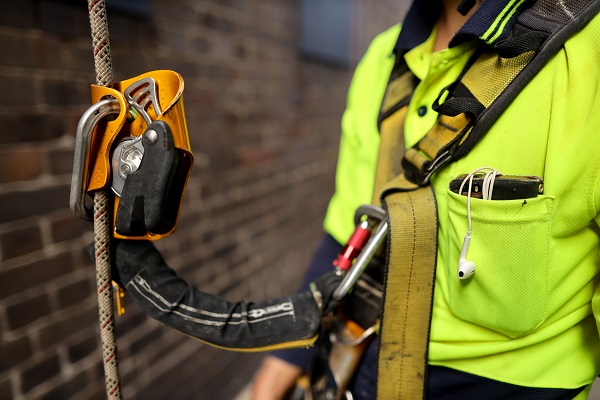Protecting Workers at Heights: Have a Fall Rescue Plan
One of the most common – and most serious – work-related injuries involves falling from a height. That’s why it’s critical that employers have a plan for when an employee falls and sustains an injury.
Our workers’ compensation attorneys at the Law Offices of Deborah G. Kohl in Massachusetts and Rhode Island explain.
How common are falls from height?
Annually, about 46,000 workers sustain a work-related injury due to a fall to a lower level, according to workplace accident statistics compiled by the U.S. Bureau of Labor Statistics (BLS) and cited by the National Safety Council (NSC). Recent annual falls from height statistics include:
- 46,005 falls from height injuries in 2022.
- 49,250 work-related falls from height injuries in 2020.
- 48,040 injuries in 2019.
- 52,510 injuries in 2018.
As for fatalities due to falls from a height to a lower level, 700 workers died in 2022, along with 680 fatalities in 2021, according to the BLS.
Common injuries sustained in workplace falls
Certain injuries are more common than others when workers fall to a lower level. According to BLS data cited by the NSC, the most common falls from height injuries include:
- Muscle sprains and tears – 26 percent.
- Bone fractures – 23 percent.
- Bruises and contusions – 13 percent.
As for which part of the body is most often injured, such injuries often impact:
- Lower extremities – 35 percent.
- Upper extremities – 20 percent.
- Trunk, especially the back – 18 percent.
Falls from height causes
There are many reasons why fall accidents happen in workplaces. In many cases, falls to a lower level happen at work because an employer did not take the necessary precautions. Examples include:
- Poor maintenance.
- Lack of safety protocols, especially those involving scaffolding.
- Failure to provide employees with safety equipment, such as safety harnesses or other personal fall arrest systems (PFAS) for employees working on scaffolding.
- Unmarked hazards that cause employees to trip and fall.
- Lack of safety training.
What laws govern workplace falls?
Many laws were created to protect workers and prevent falls from height. The Occupational Health and Safety Administration (OSHA), a federal agency, created many of these laws, including:
- OSHA General Industry Standard 1910.140, which states that employers must provide personal protective equipment and rescue workers in a timely manner in the event of a fall.
- OSHA Construction Standard 1926.502, which includes rules and regulations governing guardrails and safety nets at work sites, along with rescue procedures.
- OSHA General Industry Standard 1910.29, which states that employers must provide “fall protection system and falling object protection” to any employee whose job involves working from a height.
What should employers do after a fall from height?
Employers need to have a plan in place for how to respond to a workplace fall. Such plans will vary from one profession to another but often include:
- Posted materials at work sites explaining exactly what workers should do in the event of a fall at work.
- Employee training that explains such protocols in detail so no time is wasted after a fall from a height accident.
- Provide regular practice training to workers so they know how they should respond to such situations so all employees know exactly what to do after a fall from height injury.
In general, accident response plans often include the following steps:
- Call 911 immediately.
- Do not move the injured worker.
- Notify a supervisor that a fall from a height accident has occurred.
- Make sure emergency medical workers can access the injured worker as soon as possible.
Seeking legal help for a work-related fall
Work-related injuries involving falls from height in Massachusetts and Rhode Island often quickly turn into complicated legal cases. This is why it’s important for injured workers to fully understand their legal rights. Otherwise, they might not receive the benefits they deserve.
If you or a loved one was injured in a fall from a height at work, an experienced workers’ compensation lawyer at the Law Offices of Deborah G. Kohl can help you every step of the way. We know the rules and regulations that apply to such accidents. We understand how the workers’ compensation system works in Rhode Island and Massachusetts. That’s why we have such a strong track record of success.
Get the personal attention you deserve after your workplace injury. Contact us and schedule a free evaluation with a workers’ compensation attorney focused on your best interests. We can review your case, explain your options, and get right to work on your workers’ compensation claim.

